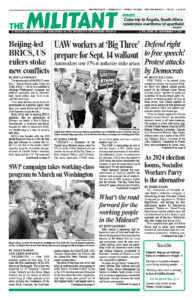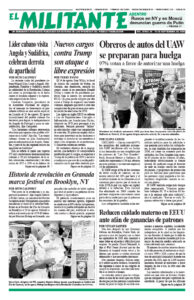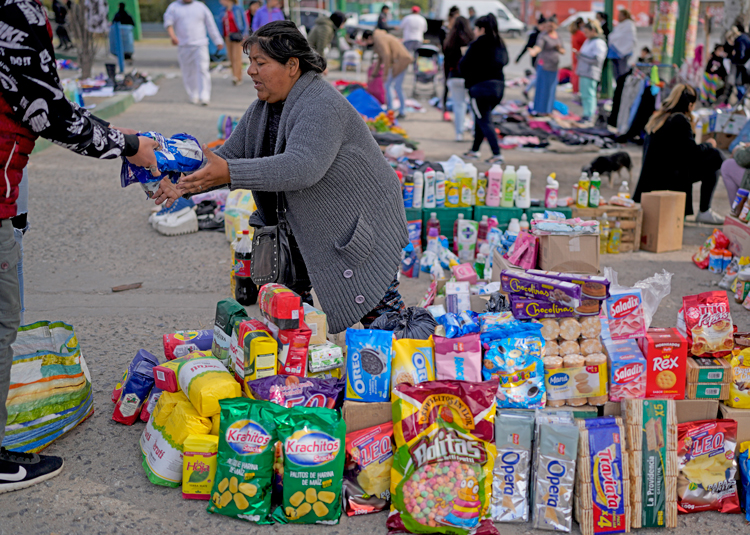Whichever candidate wins the presidential election in Argentina in October will only mean more hardships for working people. In the midst of the deep capitalist crisis shaking the country, the solutions offered by all the capitalist politicians foreshadow belt-tightening measures, continued inflation and more attacks on wages and pensions, as the Argentine rulers seek to satisfy the demands of foreign investors and creditors as well as of domestic capitalists.
Widespread frustration with worsening conditions and the absence of any working-class political leadership opened the door to a narrow win in the Aug. 13 primary election for Javier Milei. His appeal is his claim to stand outside the two traditional political coalitions. Milei took 30% of the vote, with Patricia Bullrich of the conservative Together for Change coming in second and the candidate of the ruling coalition of Peronist parties, Sergio Massa, third. They will now face off in October.
Alongside cuts in social spending, Milei says he will meet the crisis by closing the central bank and abandoning the currency, the peso, in favor of the dollar.
The current president, Alberto Fernández, has a 75% disapproval rating. In an attempt to boost support for his Peronist coalition, Fernández announced a 23% increase in payments to retirees before the primary. The day after the vote, however, his government devalued the peso by 20%, wiping out almost all of the raise.
Inflation ran at a staggering 113% in July. While I was recently there, I was able to witness the impact on the daily life of working people. Fruit and vegetable vendors at sidewalk stalls regularly stop selling selected items at mid-morning, and resume sales mid-afternoon, with prices adjusted to the daily, and sometimes hourly, fluctuation in the dollar-peso exchange rate. Many other products have the same kind of price gyrations.
Items ordered and prepaid in full at major stores often require payment of the inflation-driven price increase at time of pickup.
As a result of the worst economic crisis since 2001, some 40% of Argentinians now live below the poverty level. The official unemployment figures are at a relatively low 6.9%, but this hides the fact that of the total number of workers currently employed, only half are registered as full time with access to benefits.
Economy Minister Massa traveled to Washington in mid-August to ask for loans from the World Bank and Inter-American Development Bank, which would further shackle the country in debt. Argentina is the largest debtor to the International Monetary Fund. The country’s foreign debt currently stands at an unpayable $275 billion.
Bubbling resistance
In the face of the sky-high prices, pressure on the government has grown from workers demanding wage hikes. In July, steelworkers, members of Unión Obrera Metalúrgica, carried out a 48-hour strike, part of their fight for a contract. Teachers and health care workers held large protests in the northwest province of Salta in May and June.
Large protests were held in Jujuy, another province in northwest Argentina, in June, demanding better wages, repeal of anti-strike and anti-protest clauses added to the province’s constitution, and an end to expansion of mining on Indigenous land. The police met protesters with violence.
These protests, however, have been largely suspended by the officialdom of unions that are allied with the governing party, as they push for the reelection of Peronist politicians. Over decades, unions have been hog-tied by their long-standing political subordination to one or another wing of the Peronist party. Since the end of World War II these coalitions have been the main props of capitalist rule, at the same time they pose as the champions of working people.
Following the primary vote, working people also have faced an increase in violent crime. In Buenos Aires and other cities looting raids on supermarkets were reported, along with widespread mugging of pedestrians and passengers on public buses.
Róger Calero contributed to this article.


